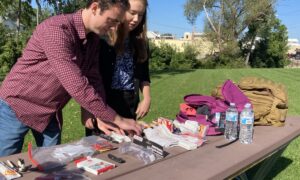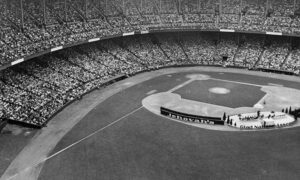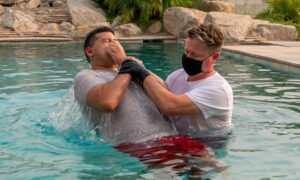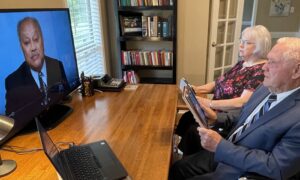Henry Carr, a sprinter who captured two gold medals in the 1964 Tokyo Olympics and later played defensive back for the Giants, died on May 29 in Griffin, Ga. He was 73.
The cause was cancer, said his wife, Glenda.
Carr, one of the leading sprinters of his time, captured a gold medal in the 200 meters with an Olympic-record time of 20.3 seconds, winning by about a yard.
“I didn’t think it was that fast,” he told The Track and Field News. “This was the easiest of my races.”
He also propelled the United States 4×400-meter relay team to gold, running the final leg in 44.5 seconds, the team’s fastest split. He combined with Ollan Cassell, Mike Larrabee and Ulis Williams for a world-record time of 3 minutes 0.7 of a second.
Carr was selected by the Giants in the fourth round of the 1965 N.F.L. draft. At 6 feet 3 inches and 185 pounds, he had a sturdy build to complement his speed and played at safety and cornerback.
His best season was 1966, when he had four interceptions and ran one back for a touchdown after picking off a pass by Los Angeles Rams quarterback Roman Gabriel on the Giants’ goal line.

But he played only three seasons in pro football, all with the Giants. He was hampered by a knee injury in his final year.
Bob Hayes, who won two gold medals in the sprints at the Tokyo Games, also embarked on an N.F.L. career in 1965 and became a Hall of Fame receiver for the Dallas Cowboys.
Henry Carr was born on Nov. 27, 1941, in Montgomery Ala., the ninth of 11 children. The family moved to Detroit when he was a youngster, and he starred in track and field, football and basketball in high school. He played football for one season at Arizona State, then concentrated on track and field.
“Winning the Olympics was more of a personal, individual achievement,” Carr told The Associated Press in 1966, contrasting track and field with pro football. “I think football is even more of an achievement for me. I can do more concrete things for myself and use football as a steppingstone for the future, along with my Olympic connections.”
He had difficulty finding work after his football career ended, his wife said. He began using drugs, but turned his life around when he and his wife were baptized as Jehovah’s Witnesses in May 1973.
“In time, I hit rock bottom morally as a man, coming into association with drug dealers and prostitutes,” Carr wrote in a 1976 article for the Jehovah’s Witnesses publication The Watchtower.
Mrs. Carr said in an interview on Sunday that her husband was raised Baptist and had not been a churchgoer, but that he joined the Jehovah’s Witnesses after he began reading the Bible to find spiritual comfort.
Carr was a Jehovah’s Witness elder, helping preside at church meetings. He also he did contracting work and owned a restaurant. He was living in Detroit when he became a Jehovah’s Witness, then moved to Griffin, Ga., when he was told that ministers were needed in that area. He later moved back to Detroit but had been living in Griffin for about 10 years when he died.
He was inducted into the National Track and Field Hall of Fame in 1997.
In addition to his wife, Carr is survived by two daughters, Piper and Andrea Carr; a son, Peyton; four brothers, Emmitt, Linwood, Jasper and Ethan; three sisters, Flozell Coachman, Charity Harris and Escalita Jones; and five grandchildren.
Carr ultimately considered the fame he achieved as an athlete to be of little consequence.
“Stars are soon replaced and generally forgotten,” he wrote in The Watchtower. “Rather than competing with others to be best, helping and serving others is what brings true satisfaction.”





